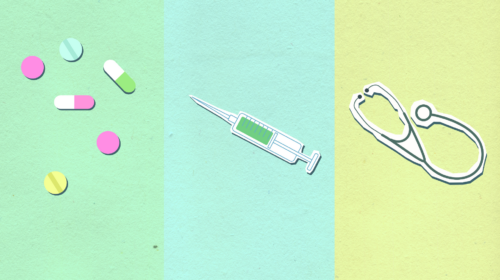What do you do when a family member or loved one struggles with substance abuse and is unwilling to seek treatment? The reality for millions of families across the United States is that they’re forced to watch their loved one struggle with addiction with very limited means to get help.
Most who struggle with substance use disorder will not seek the lifesaving treatment that they need on their own because their decision-making has been chemically hijacked by drugs or alcohol. At the same time, their families’ hands are often tied when it comes to getting them into treatment.
Addiction in families tears even the closest families apart. For residents in Florida, however, The Marchman Act makes it a little easier to maneuver within this difficult situation.
What is The Marchman Act?
Formally known as the Marchman Alcohol and Other Drug Services Act of 1993, the Marchman Act[1] is a statute specific to Florida that attempts to solve addiction in families.
At its core, the Marchman Act serves as a progressive statute regarding drug and alcohol rehab. This statute allows an involuntary petition to be submitted to the courts for mandated assessment, detox, and long-term treatment of individuals who will not do it themselves.
The Marchman Act allows anyone with personal knowledge of a person struggling with substance abuse to seek help. That means that spouses, guardians, blood relatives, three close friends, doctors, and sometimes even law enforcement officers can file a petition to treat the individual if they have direct knowledge of their substance abuse.
How is the Marchman Act Different from the Baker Act?
The Marchman Act and the Baker Act are two pieces of Florida legislation designed to help individuals struggling with substance abuse and mental health issues, respectively. While they share a common goal of assisting those in need, they differ significantly in their scope, application, and processes.
The Marchman Act
The Marchman Act focuses on individuals who are battling substance abuse and addiction. This legislation allows for involuntary assessment, stabilization, and treatment of a person abusing drugs or alcohol if they are deemed a threat to themselves or others or cannot understand the need for care due to their impairment.
The Marchman Act is often employed when the loved ones of an addicted individual see no other way to get them the help they need.
The Baker Act
The Baker Act is aimed at individuals suffering from mental health disorders. This law allows for involuntary examination (typically up to 72 hours), and potentially involuntary treatment for individuals who pose a significant risk to themselves or others due to their mental illness. Judges, law enforcement officials, physicians, or mental health professionals can invoke the Baker Act.
Key Differences
The primary difference between the two Acts lies in the conditions they address – the Marchman Act is for substance abuse, while the Baker Act is for mental health crises.
Another key difference is the duration of the involuntary hold. Under the Baker Act, an individual can be held for up to 72 hours for psychiatric evaluation. After that, further court action is required for longer periods of detention or treatment.
In contrast, under the Marchman Act, after initial assessment and stabilization, a person can be ordered to long-term treatment for up to 60 days, which can be extended to 90 days if necessary.
Who Is Subject to The Marchman Act?
Although the Marchman Act is a Florida statute, anyone who steps foot in the state is subject to its parameters. After a petition is filed, a hearing is set up within ten days, and the person in question may be held for assessment and medical stabilization for up to another five days after the hearing.
Based on the results of this assessment, a recommendation and possibly a petition for treatment are submitted to the court, both of which are reviewed in a second hearing. Should the court find treatment a necessary option due to the recommendation, the judge assigns a sixty or ninety-day court-ordered treatment period.
How Enforceable is The Marchman Act?
Most programs assigned for the Marchman Act are open-door, voluntary programs mandated by a court order. Failure to follow through with the treatment can result in the respondent being held in contempt of the court or the worst-case scenario, sentenced to jail time for up to six months.
Fortunately, many counties rarely enforce treatment orders with jail time to encourage active participation. The Marchman Act has become a common tool to help fight family addiction.
How Effective Has the Marchman Act Been?
While the Marchman Act may seem like it provides all the solutions for people unwilling to commit themselves to treatment, it isn’t a perfect law. The reality is that there are pros and cons to filing a petition with the courts. In numerous ways, the Marchman Act is an effective way to open the door to the possibility of treatment for those suffering from an addiction.
Many families and attorneys intimately involved in Marchman cases feel that the hearings give both sides a platform to voice their concerns and start a conversation about how the possible substance abuse affects the individual and their personal relationships. Oftentimes, these hearings rekindle relationships between the respondent and their loved ones and encourage them to treat their substance abuse more willingly.
Even if the cases do not result in the court mandating treatment, the hearings are almost always effective in encouraging voluntary treatment. This is because people in the system and involved in the process care about everyone involved and want those struggling with addictions to continue improving.
Unfortunately, while most of the time these hearings facilitate discussion with their loved ones, plenty of involuntarily committed patients are still more reluctant to start down the path toward recovery than voluntary patients.
The Marchman Act’s Impact on Rehabilitation
In addition to helping to address addiction in families, many point to the Marchman Act’s success in reducing the prison population. Before the introduction of this act, the number of people in jail for drug and alcohol-related charges was significantly higher than what they are now.
After the Marchman Act was implemented, government funding poured into creating and maintaining Addictions Receiving Facilities (ARFs) instead of local jails, which assisted in cutting down the number of addicts cycling in and out of jail.
However, more work still needs to be done because there are still not enough state-funded beds for people who need rehabilitation. Although there has been an enormous shift in the focus on improving the opportunities for addicts to recover, Florida’s 67 counties remain in a funding crisis, forcing individual cities and counties to seek other solutions.

























